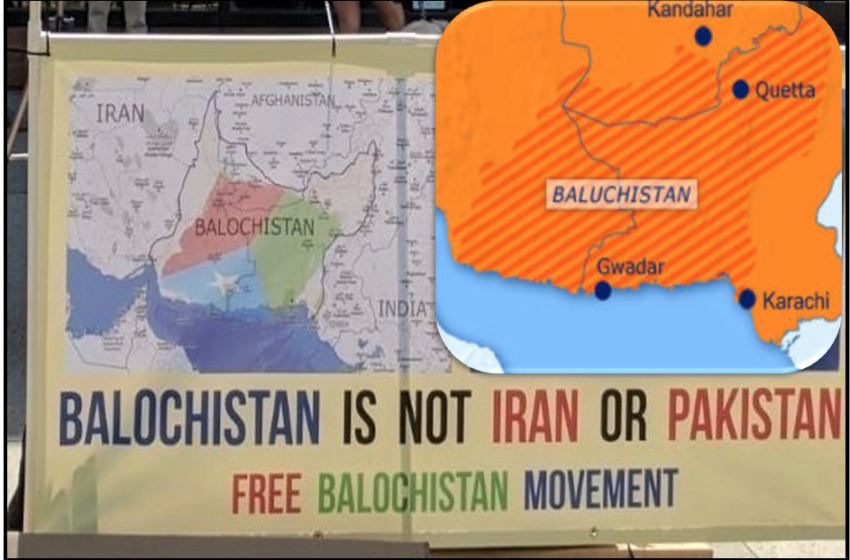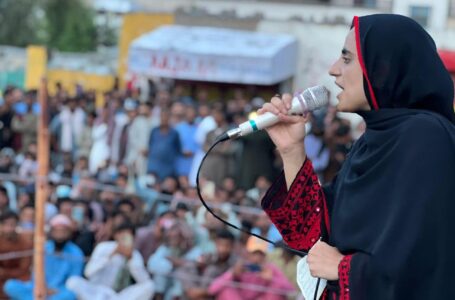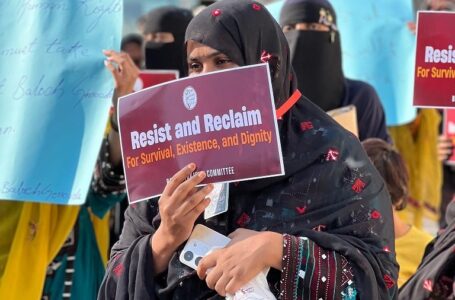FBM Holds Simultaneous Protests Against Pakistan’s Nuclear Tests on Baloch Land
Global Silence: A Contributing Factor For Human Rights Violation In Balochistan

By Shahdad Baloch
It is not the first time that the international community’s silence on human rights violations has been marked as a silent spectator amidst the human rights crisis in Balochistan. With the current outlook across Balochistan, the kith and kin of the Baloch nation are staring at the global community in Islamabad in the hope that they would lend a supporting hand and the Global arena, before 10 Downing Street in London, in the USA and the rest of Western countries Baloch are questioning the global mistake of silence.
The right of a legal demand for support to which Western, Middle Eastern, South Asian, far Eastern, and Central Asia are signatories under the umbrella of the United Nations is met with silence, it defies the logic of global protection. The ‘Silent Narrative’ of member states reflects a weak global policy on the ‘Human Rights Section’ of the UN. Perhaps the reason is irresponsibility and lack of commitment by the pioneers of the UN and the prolonged silence of NATO forces that intervened in Kosovo on humanitarian grounds.
According to the International Criminal Tribunal for the former Yugoslavia, the numbers of Kosovar Albanian people who were killed by Yugoslav forces during the Kosovo War were between 7000-9000, when the NATO and Western community justifiably intervened by liberating that small nation whose plight was almost touching the grave level of ‘Ethnic Cleansing’, however, the same level of genocide of Baloch is being perpetrated by Pakistan and global powers including NATO seem to be waiting for more bloodshed in Balochistan. Kosovo’s independence ended with two decades of wars. There is no such document of the United Nations or other international organisations that stipulates that there will be no intervention until thousands are killed or live in miserable conditions.
Then the choice rests with the global community who may or may not listen to centuries-old voices being raised in different eras of Baloch freedom struggle. In the case of ‘the referendums of Quebec Province of Canada in 1980 and 1995, the Canadian government itself listened to voices for the independence of Quebec province, the central government of Canada didn’t suppress Quebec people’s demands with jets, tanks, Drones and bombs.
Moreover, Iran and Pakistan are butchering the dissidents of occupied nations with their barbaric armies. It seems that ‘Human Rights’ and the right to self-determination are based on terms and conditions that first the suffering nations should bleed generation after generation then they will get global attention to address their plight.
The unjust demarcation of Balochistan into three parts and the subsequent occupation by Iran and Pakistan by the British is a historical blunder because of this division, both Iran and Pakistan plundering the natural resources of Balochistan and with the strength of Baloch wealth, both are terrorising and blackmailing the Western world, USA and British.
In fact, under the UN conventions, it is a legitimate right for nations to Politically and militarily struggle for their freedom against colonialism. Indeed The United Nations plays a crucial role in supporting freedom struggles, self-determination, and the decolonisation process. The relevant UN body for these matters is the Special Committee on Decolonisation, often referred to as the “Committee of 24” (C-24). The C-24 focuses on addressing situations where territories are still under colonial rule or where people are struggling for their right to self-determination. The committee reviews the political, economic, social, and educational situations in these territories, working towards facilitating their independence or other mutually agreed political statuses.
Despite the legal commitment, it has yet maintained a silent policy over the decades-old Socio-Political and economic plight of Baloch nation, knowing the fact that for decades in modern politics, the Baloch nation has been fighting as a responsible nation for its freedom. Throughout history, the UN has been involved in assisting nations in their pursuit of freedom and self-determination, offering a platform for dialogue, diplomacy, and international support. These offers have been unheard of by the Baloch nation since history in retrospect. Because the incumbency to international standards of freedom is a tough course with a heavy price. Thousands of East Timorese lost their lives, and the period of their struggle was turbulent, leading to widespread violence and displacement. Many east Timorese faced atrocities, including killing, disappearances, and other human rights abuses, and then the world reacted.
But with this set of criteria for freedom movements is today questionable how an international body including NATO And South Asian Association For Regional Conference (SAARC) members countries have established the ‘South Asian Forum for Human Rights (SAFHR), a non-governmental organisation that works closely with SAARC to address human rights concerns. The ‘narrative of SAFHR’ is read as it plays a role in ‘advocating’ for the protection and promotion of human rights. But its member state Pakistan is yet unchecked and accountable for human rights violations in Bangladesh ( Whose silence is astonishing too in the Balochistan case and India has taken Mumbai 26/11 and the child of Pakistani terrorism Ajmal Kasab as an internal affair despite India’s sovereignty was badly hit. It seems as if South Asian nations are more focused on a weak national interests approach and carrying the burden of poverty and socio-political evils knowing the reason that a liberated Balochistan has enormous potential to address the prevailing issues of the region.
Unfortunately, Narender Modi, the premier of India paid a visit to a poverty-riddled house and had to say that in the modern era, Methane Gas Cylinders are being used in millions of Indian households, and the Baloch nation feels the sufferings of the Indian nation. The current approach to Indian geopolitics in the region does not address the issues. Baloch as an oppressed nation cannot address the energy issue of the region unless it is helped to regain its independence, Baloch has immense natural wealth, however, nothing can be done in terms of inclusiveness and cultural heritage. The regional political dilemmas can be addressed in the form of the economic, political and military alliance when Balochistan independence is recognised. The Global Village has now shrunk into a Global Street where nations strive to find solutions to their problems through regional and global alliances.
The Baloch nation is continuously striving to meet the criteria of the United Nations with blood and the silence of the Arab League in the Middle East where Iran is committing genocide of Kurds, Ahwazi Arabs and Baloch in particular is painful. Baloch nation is following the footsteps of struggling nations, and in this prevailing system blood is the price of liberation since 1839 our nation is paying for it.
The divide that the British inflicted upon the Baloch territory is a proven mistake because, in the modern era, the Baloch nation is emerging as a secular nation despite all attempts to radicalise it into religious fanatism, unlike the radical fanatic states like Iran and Pakistan, who are playing as global players for creating cheap mercenaries, devastating the regional and global peace. But Baloch remained as a deterrent to these heinous policies which are disturbing the world. Notable is Israel, it is facing the mercenaries who are the brain-child of Iran breeding more Qasim Suleimani, whom Donald Trump called as ‘father of roadside bombs. But what is the next before the world, where Israel is in a war with a mercenary but not towards a policy of holding Iran accountable for its actions? The weakness of the world is serving as a catalyst for both evil-doing states across the world as history defines their actions in retrospect.
The only option for the world is to help liberate Balochistan by addressing the decades-old global mistakes of the division of Balochistan with a rational approach to look at how many times Pakistan and Iran are being blessed with financial and political immunities and what in action both countries are doing. Indeed Baloch nation echoed it already before the world that ‘The Nuclear deal with Iran is a devil’s deal”. Despite when the world stood with a nuclear deal with Iran Baloch didn’t surrender its commitment and poured more blood into its ultimate goal which is the restoration of Balochistan’s lost sovereignty by rejecting the centuries-old unjust demarcation of their country.










